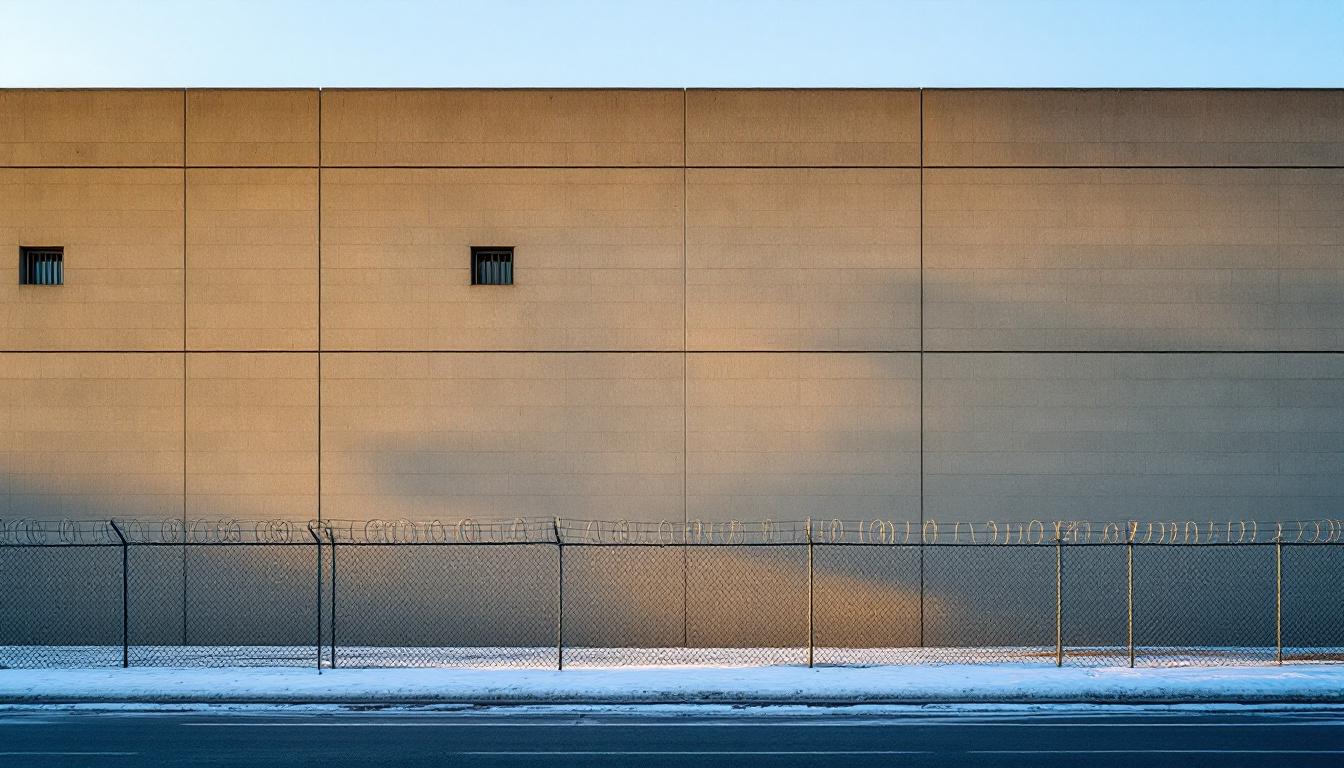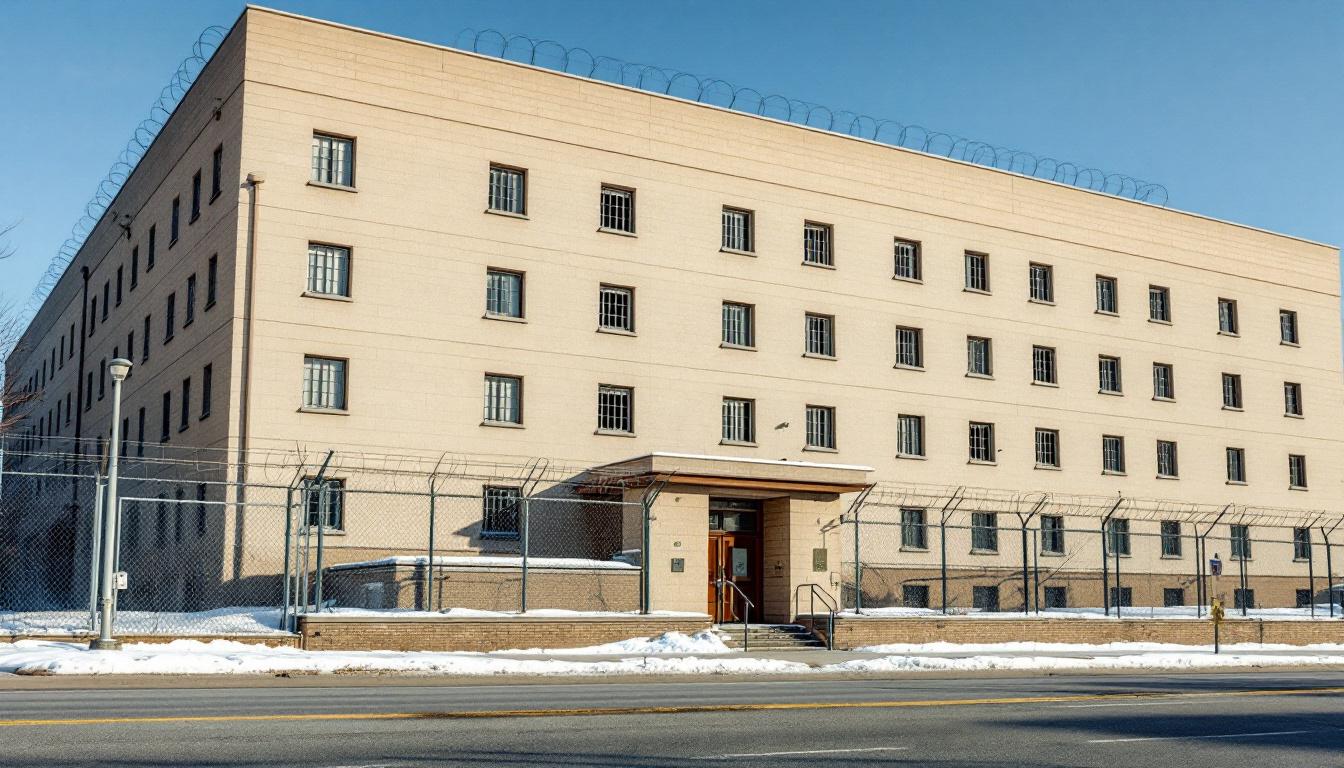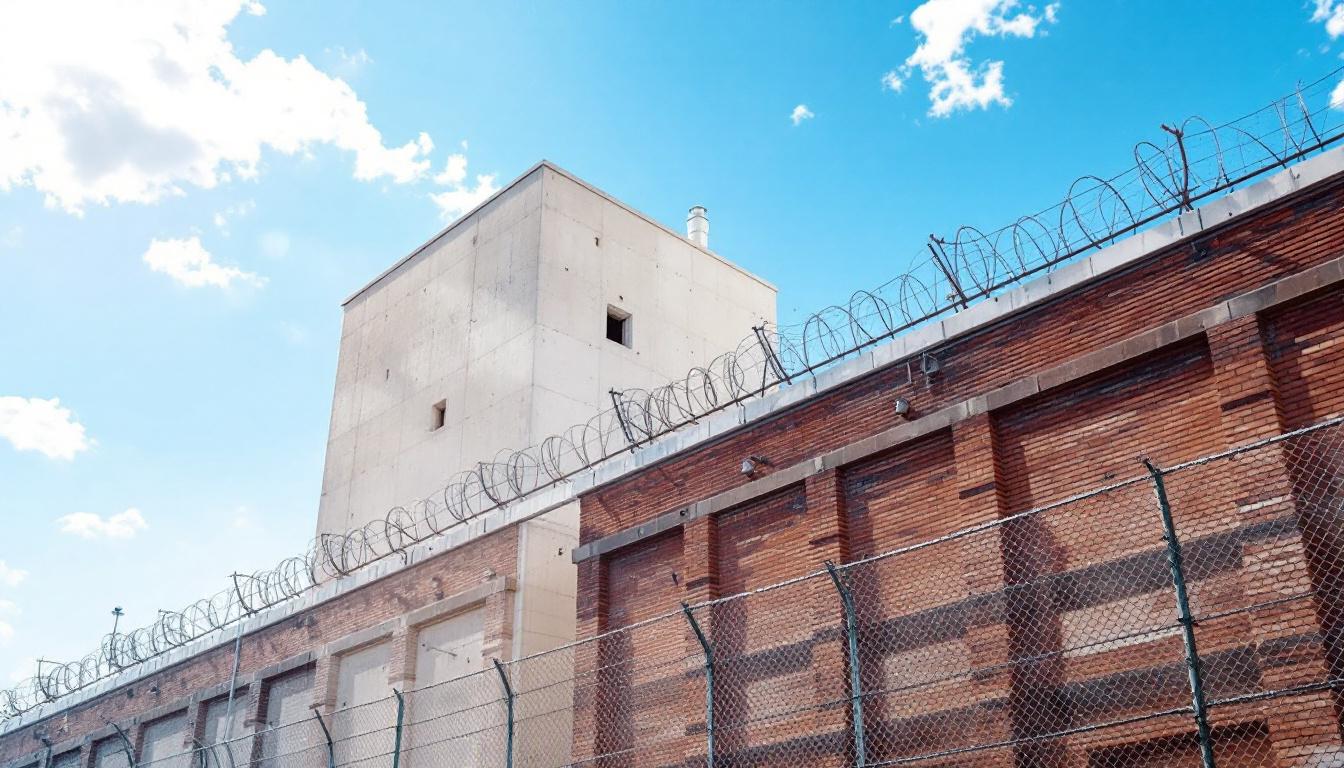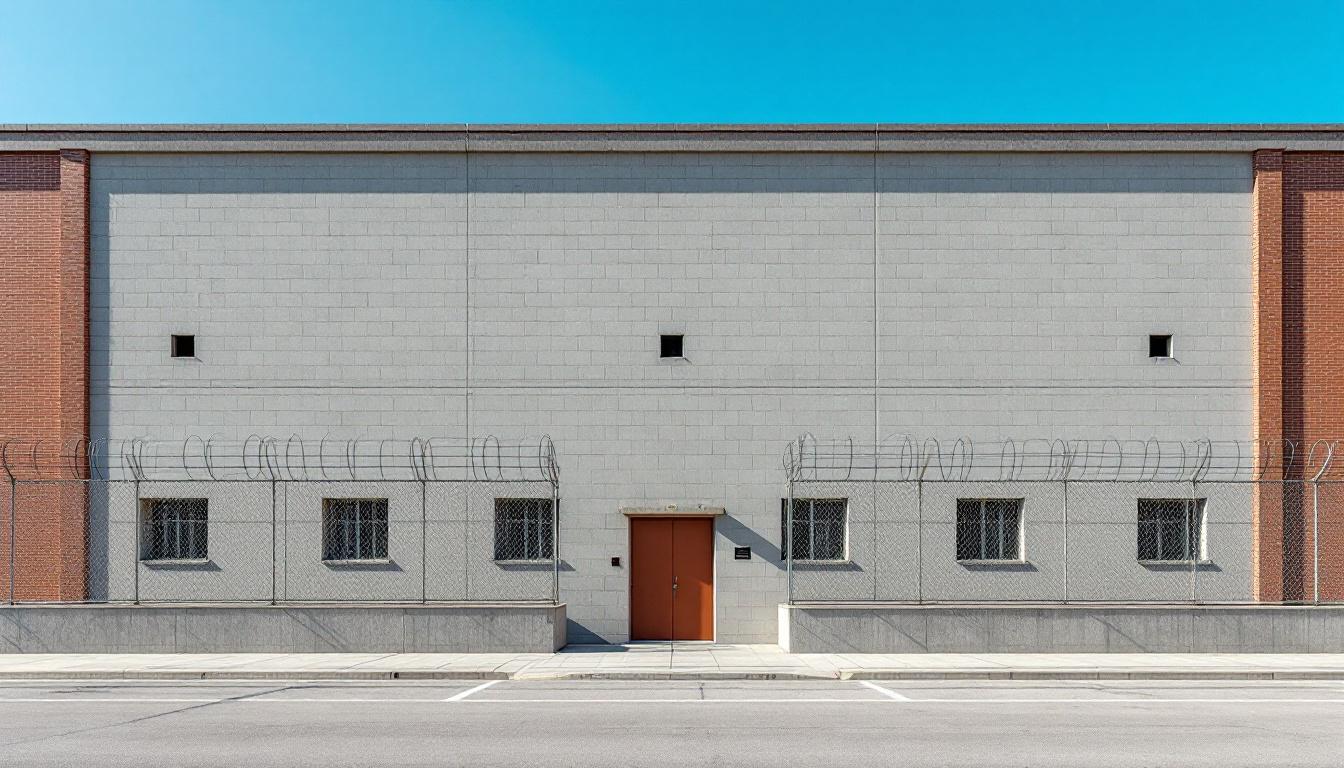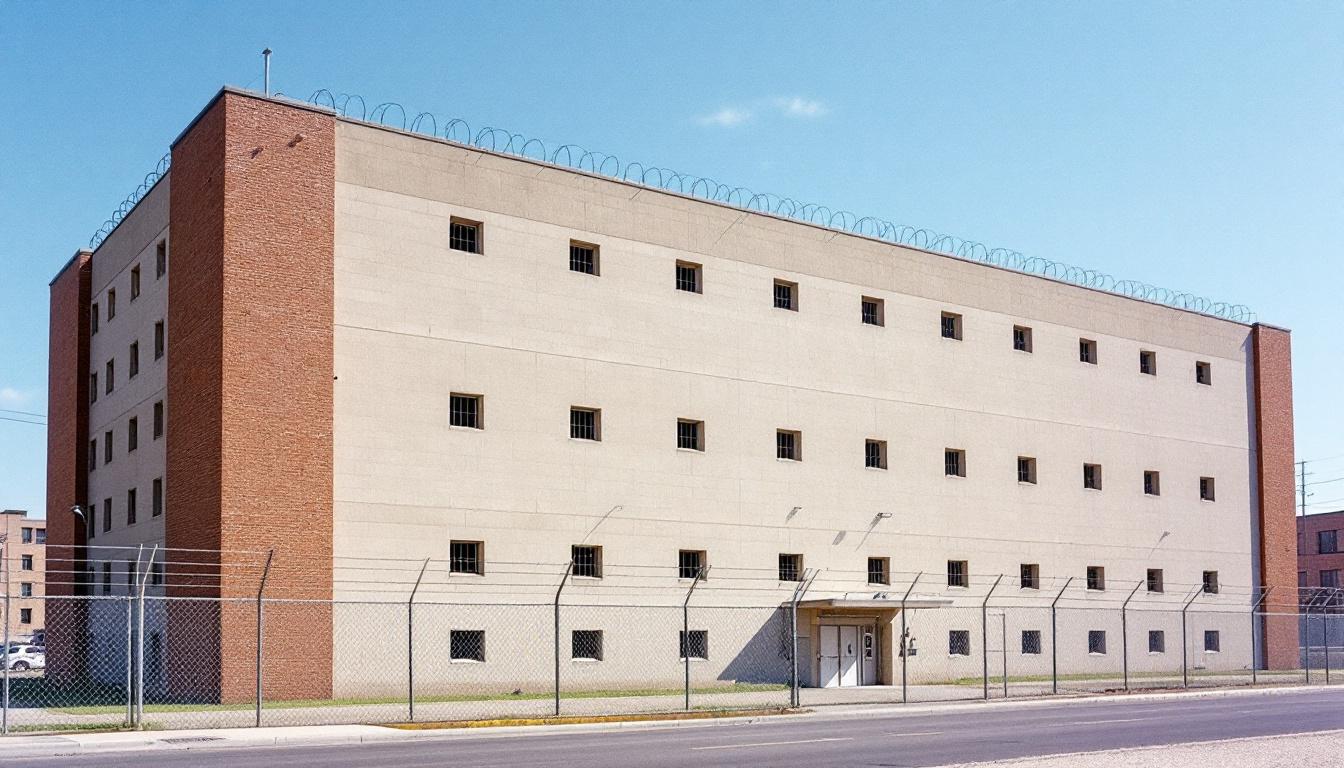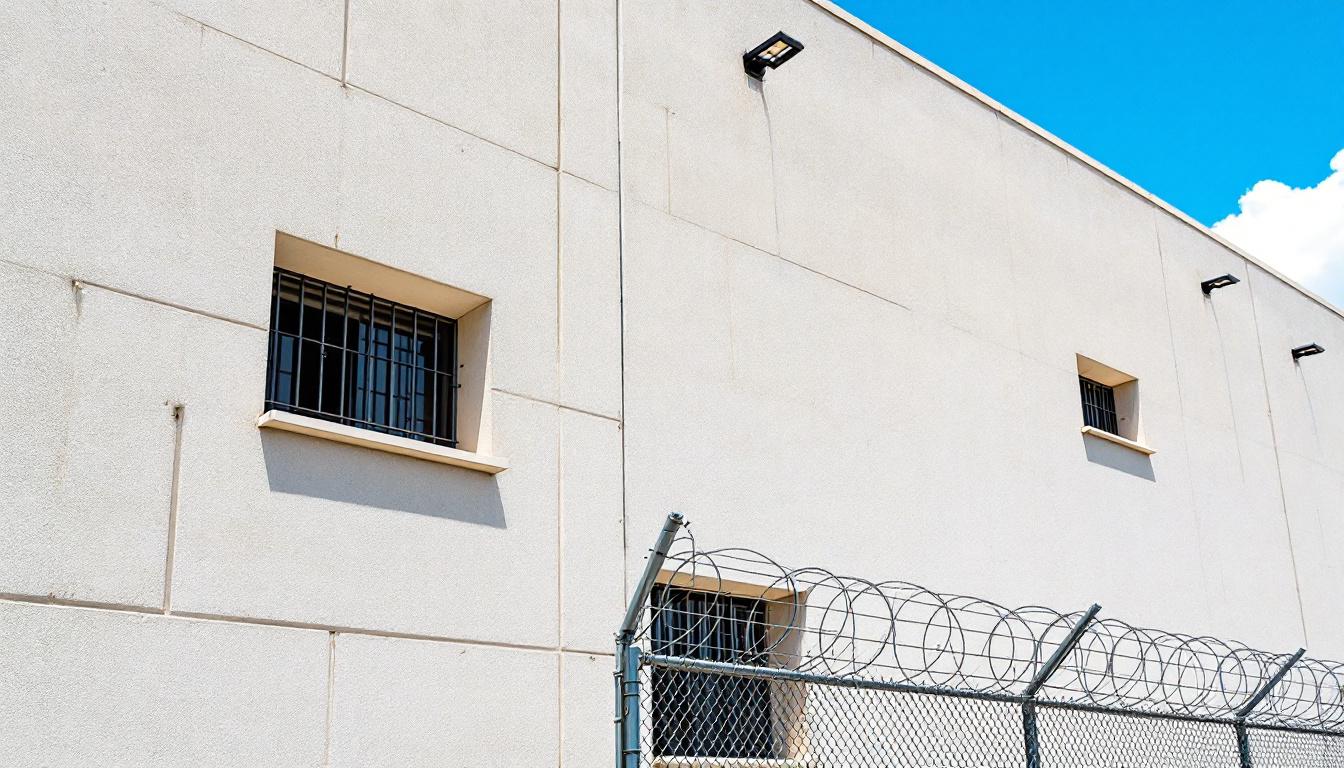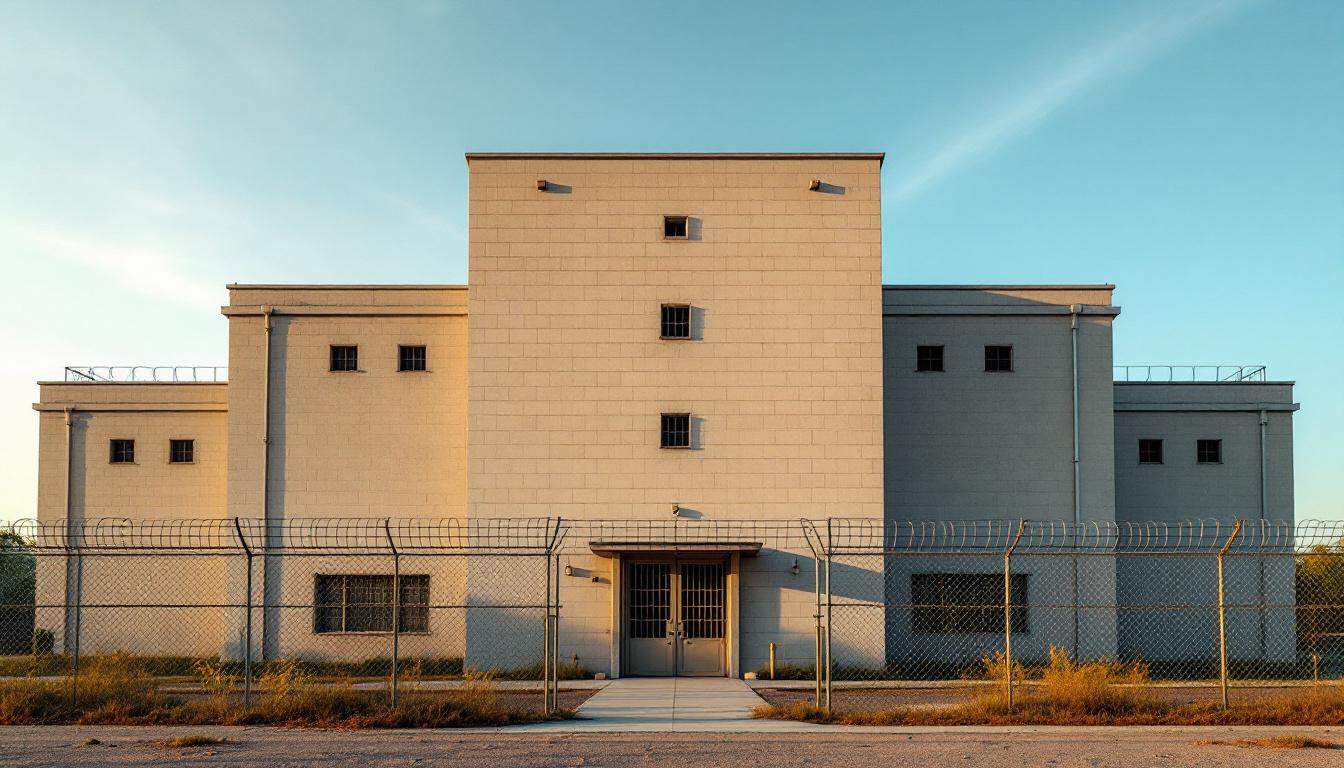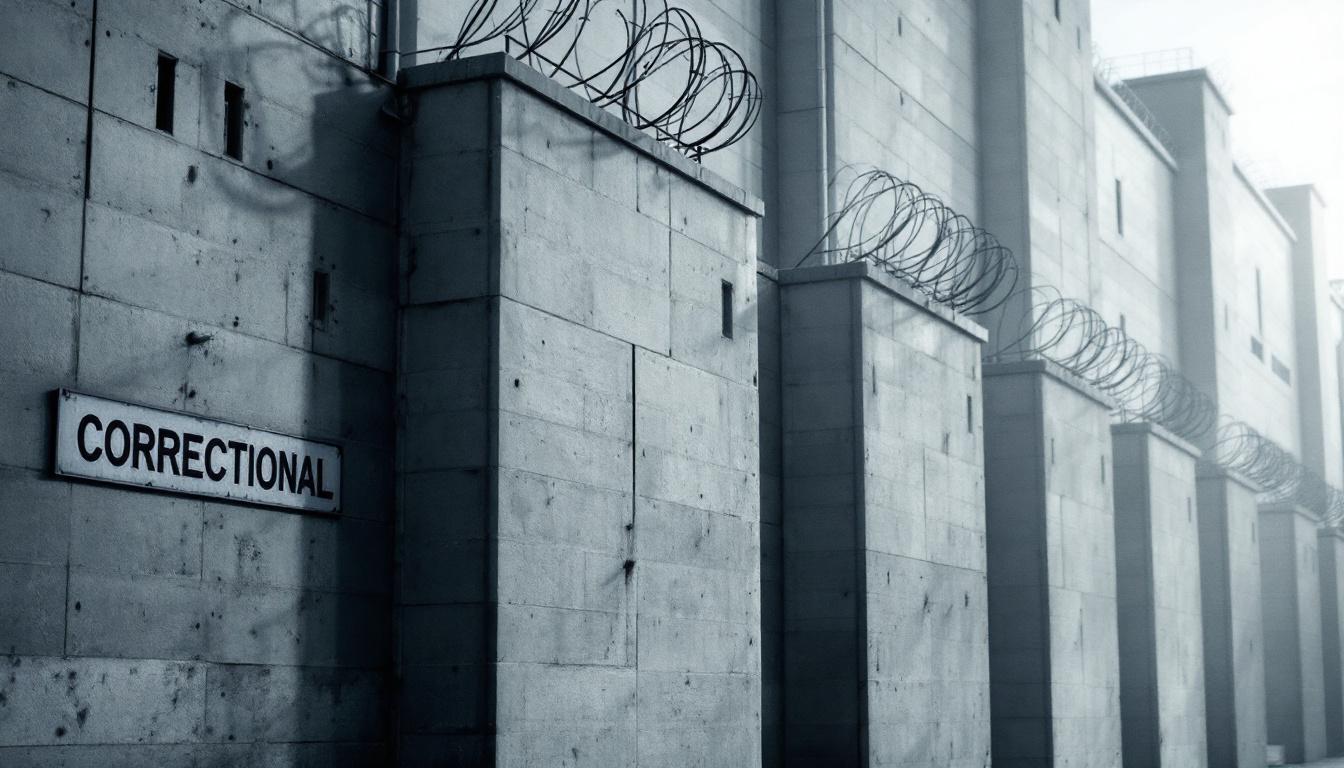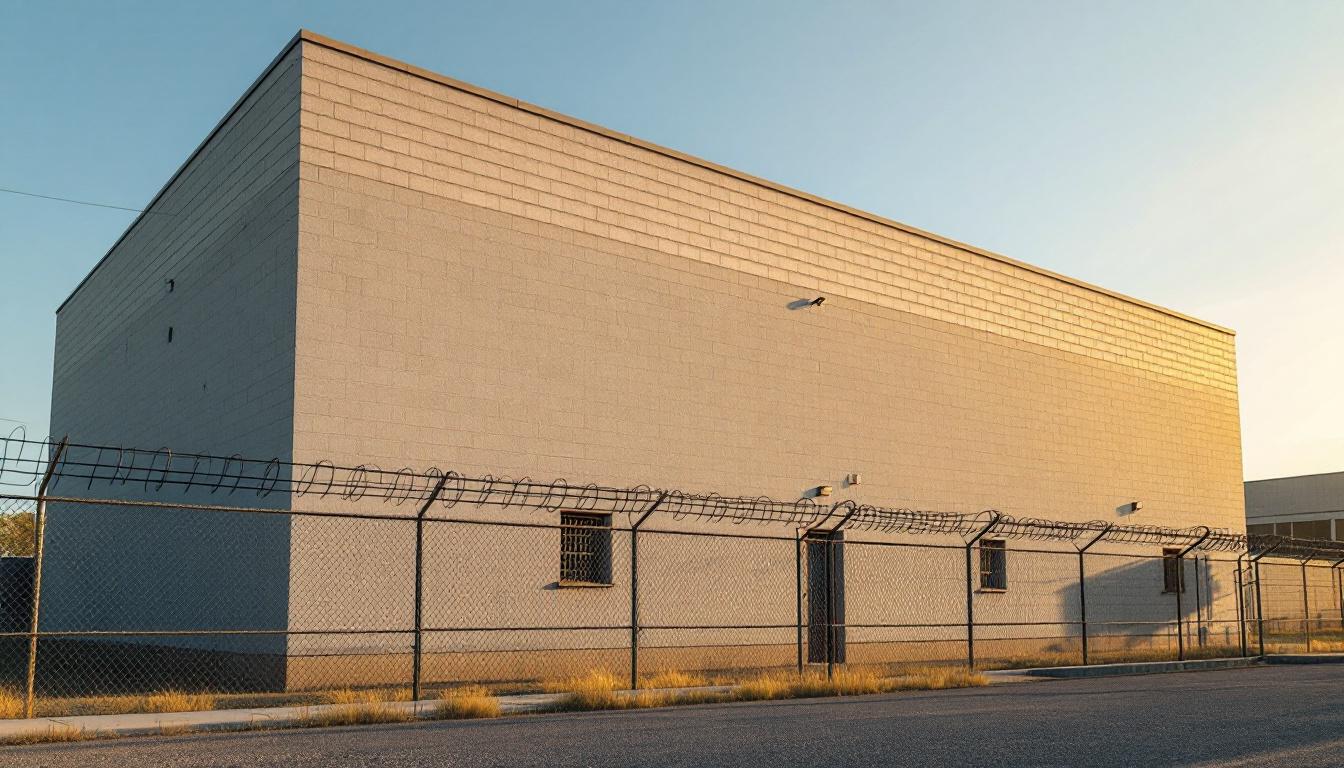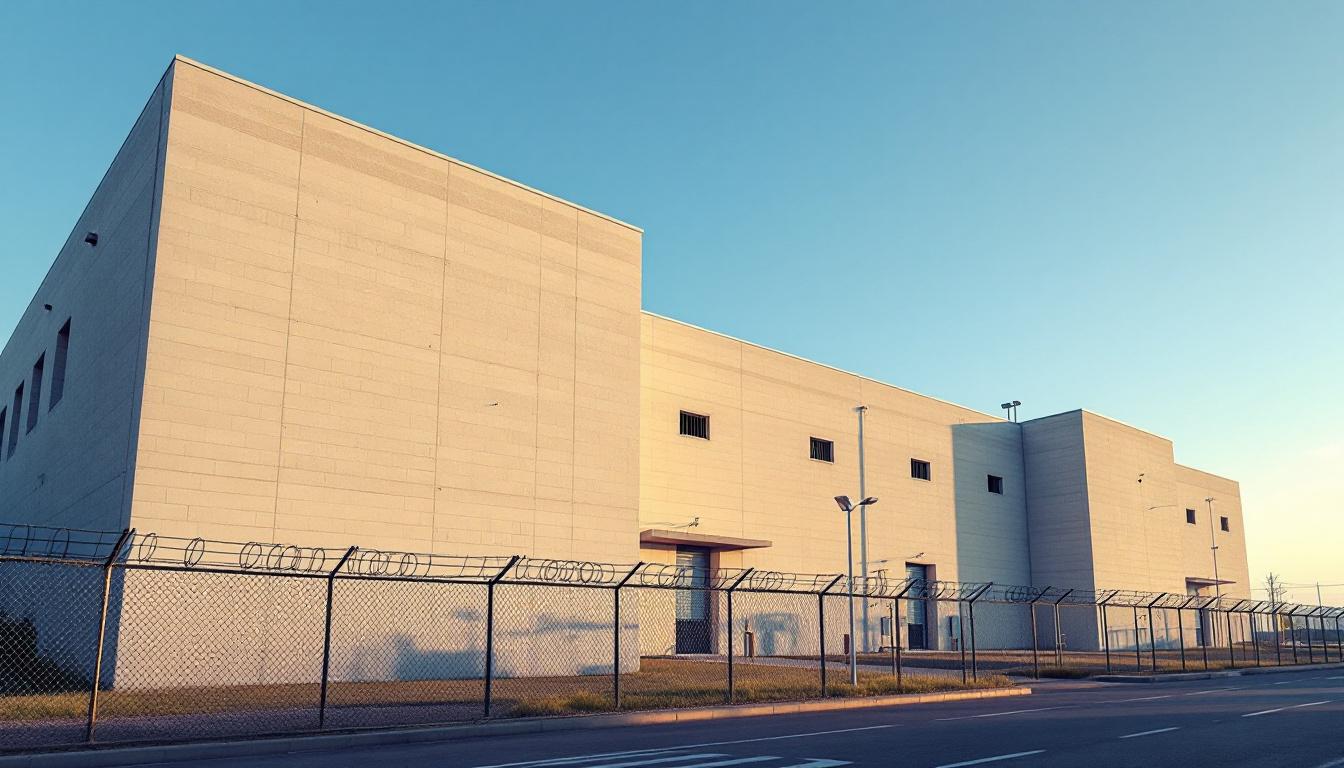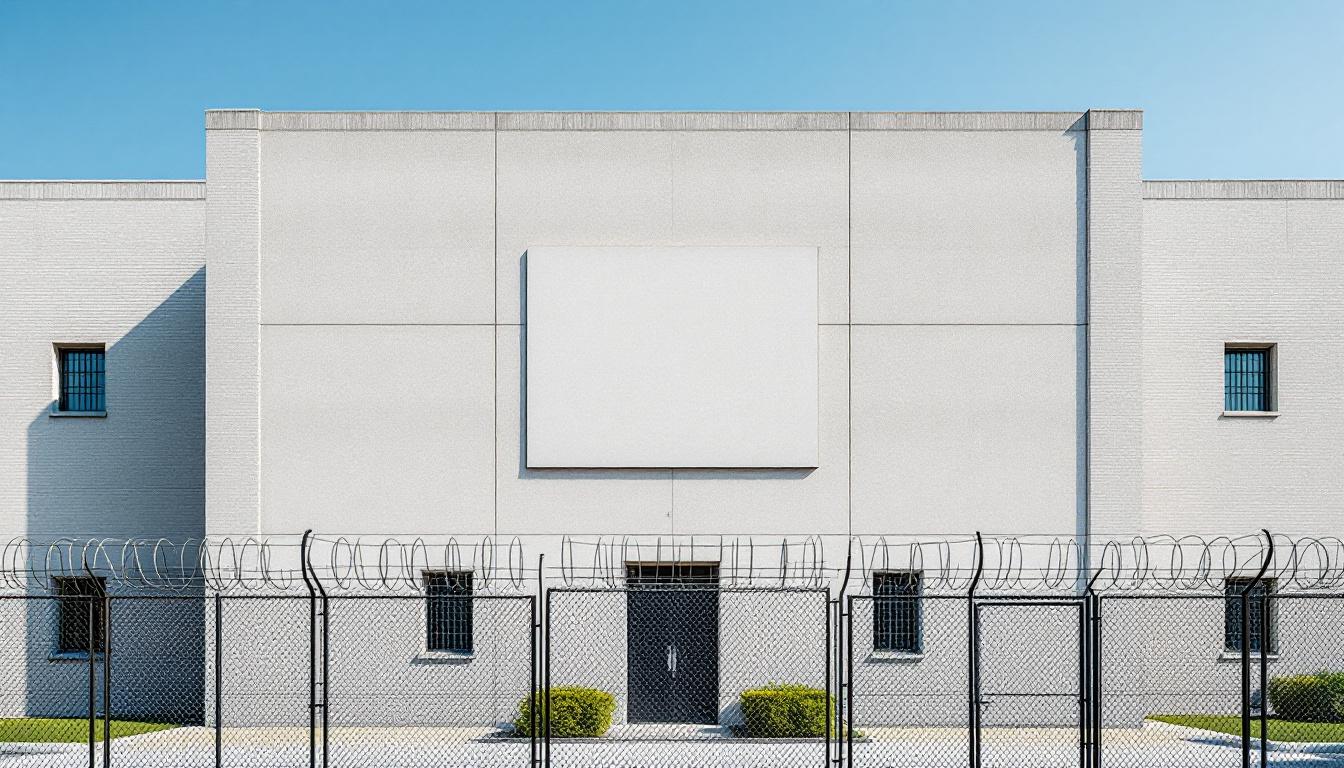
Quick Navigation
How to contact an inmate at Centennial Correctional Facility
This comprehensive guide will walk you through how to connect with an inmate at Centennial Correctional Facility. Follow the steps below to find an inmate and send letters and photos:
- Search for the inmate using our search tool below
- Create your account or log in to Penmate
- Write your message (up to 6,000 characters)
- Send instantly - inmates receive printed copies daily
Find an Inmate
Search for an inmate to start communicating today
Tip: You can search by first name, last name, or inmate ID number
To contact a person at Centennial Correctional Facility start by searching for the person on the facility website. Perform a search by following these steps:
- Step 1: Enter their first name and last name into the search form and click "Search"
- Step 2: Locate their inmate record
- Step 3: Write down their Inmate ID and any housing information provided
Important! Be sure to enter the person's full name. Nicknames should not be used.
How to Send Messages to Inmates

You can use your phone or computer to send emails, letters, and photos to an inmate. Messages are sent electronically to inmate tablets or kiosks at the facility. If you would like to send a message, start by searching for an inmate at Centennial Correctional Facility.
Sending Photos and Postcards

A great way to send love and support to a loved one at Centennial Correctional Facility is to send photos and postcards. It only takes a few minutes to send photos from your phone and it makes a huge difference. You can also mail postcards with words of support and inspiration, or design your own postcard for special moments like birthdays and holidays.
Important! Be sure not to send any explicit photos or they may not be approved by the facility. You can also use a photo printing app like Penmate to make sure your photos are printed at the correct size (4x6 or 3x5) and are mailed according to the rules and regulations of Centennial Correctional Facility.
Frequently asked questions about Centennial Correctional Facility
-
How long does it take to deliver a message?
If you're sending an email message your letter is usually delivered within 24-48 hours. For messages sent via mail you should expect delivery within 3-7 days. All messages will need be approved by Centennial Correctional Facility.
-
How much does it cost to send a message to Centennial Correctional Facility?
You can send a message free using your phone or mail a message via USPS for the price of a $0.60 stamp and envelope. You can also purchase credits or e-stamps from services starting at $1.99.
-
What services can I use to contact an inmate at Centennial Correctional Facility?
Penmate
You can use Penmate to send letters and photos to an inmate from your phone. It's an easy way to stay in touch during your loved one's incarceration. Use the inmate locator to find an inmate's location and contact information, then you can send messages within a few minutes.
Securus messaging
Securus may be another option for communicating with an inmate at Centennial Correctional Facility. You can create a friends and family account and purchase credits to send messages. All messages will be reviewed and must be approved by the facility.
JPay
Some county jails and state prisons may support sending messages with JPay. You must register an account with the system, find your loved one, and purchase stamps to send messages. For some locations you can also attach photos.
Smart Jail Mail
You may also check if Smart Jail Mail is available at Centennial Correctional Facility. Smart Jail Mail is operated by Smart Communications and has contracted with some state and county jails. After purchasing credits, your messages and photos are sent to the facility, printed out, and then handed out to your loved one.
-
What is the mailing address of Centennial Correctional Facility?
Mailing address:
Centennial Correctional Facility
600 Evans Rd
Cañon City, CO 81212
Phone: (719) 269-4810Business hours:
- Monday: 6:00 AM – 12:00 AM
- Tuesday: 6:00 AM – 12:00 AM
- Wednesday: 6:00 AM – 12:00 AM
- Thursday: 6:00 AM – 3:00 AM
- Friday: 6:00 AM – 3:00 AM
- Saturday: 6:00 AM – 3:00 AM
- Sunday: 6:00 AM – 3:00 AM
-
What are the visiting hours at Centennial Correctional Facility?
Visiting hours at Centennial Correctional Facility vary by housing unit and security level. Generally, visits are scheduled on weekends and holidays, with some facilities offering weekday visits. Contact the facility directly at (719) 269-4810 or check their website for the current visiting schedule. Visits typically last 30-60 minutes and must be scheduled in advance.
-
What items are prohibited when sending mail to Centennial Correctional Facility?
Prohibited items typically include: cash, personal checks, stamps, stickers, glitter, glue, tape, staples, paperclips, polaroid photos, musical or blank greeting cards, hardcover books, magazines with staples, and any items containing metal or electronics. Only send letters on plain white paper with blue or black ink. Photos must be printed on regular photo paper (no Polaroids). Always check with Centennial Correctional Facility for their specific mail policies.
-
How do I send money to an inmate at Centennial Correctional Facility?
You can send money to an inmate at Centennial Correctional Facility through several methods: 1) Online using JPay, Access Corrections, or the facility's approved vendor, 2) Money orders mailed directly to the facility with the inmate's name and ID number, 3) Kiosks located in the facility lobby, or 4) Over the phone using a credit or debit card. Fees vary by method, typically ranging from $2.95 to $11.95 per transaction.
-
Can I schedule a video visit with an inmate at Centennial Correctional Facility?
Many facilities now offer video visitation as an alternative to in-person visits. At Centennial Correctional Facility, video visits may be available through services like Penmate, Securus Video Connect, GTL, or ICSolutions. Video visits typically cost $10-20 for 20-30 minutes and must be scheduled in advance. You'll need a computer or smartphone with a camera and reliable internet connection. Contact the facility for their specific video visitation policies and approved vendors.
-
What identification do I need to visit an inmate at Centennial Correctional Facility?
All visitors must present valid government-issued photo identification such as a driver's license, state ID, passport, or military ID. Minors must be accompanied by a parent or legal guardian who can provide the minor's birth certificate. Some facilities require visitors to be on the inmate's approved visitation list, which may require a background check. Contact Centennial Correctional Facility for specific ID requirements and visitor approval procedures.
-
How can I find out an inmate's release date?
To find an inmate's release date at Centennial Correctional Facility, you can: 1) Use the online inmate search tool if available, 2) Call the facility's records department, 3) Contact the inmate's case manager or counselor, or 4) Have the inmate provide this information during a call or visit. For privacy reasons, some facilities only release this information to immediate family members.
Facility Overview
Contact Information
Centennial Correctional Facility600 Evans Rd
Cañon City, CO 81212
Phone: (719) 269-4810

About Centennial Correctional Facility
Nestled within the mountainous terrain surrounding Canon City, Colorado, Centennial Correctional Facility, Co operates as an integral component of the state’s correctional infrastructure. The facility’s location in this historic region of Colorado positions it within a community that has long been associated with corrections and rehabilitation services. As a CO correctional facility, it typically serves individuals who have been sentenced through the state’s judicial system, focusing on a structured approach to offender management that emphasizes both security and systematic support for behavioral change.
The facility’s operational philosophy generally centers on providing residents services that address multiple aspects of successful reintegration into society. Educational programming may include basic literacy development, GED preparation, and vocational training opportunities that align with regional employment needs. Mental health support, substance abuse counseling, and life skills development often form core components of the rehabilitation framework. Staff members typically work collaboratively with residents to develop individualized plans that address specific criminogenic factors while building upon personal strengths and interests.
Through its comprehensive approach to correctional management, the facility generally maintains various programming tracks designed to meet diverse resident needs. Work assignments, recreational activities, and structured therapeutic interventions may be integrated into daily operations to promote positive behavioral changes and community readiness. The Canon City location often facilitates connections with local community resources and transitional support services, potentially enhancing the continuum of care as residents prepare for eventual release and community reintegration.
Programs & Services
Comprehensive rehabilitation initiatives at Centennial Correctional Facility emphasize skill development and personal transformation through evidence-based programming designed to address the multifaceted needs of residents. The facility’s approach typically integrates academic advancement, practical workforce preparation, and therapeutic support services to create pathways for successful community reintegration. This holistic methodology recognizes that meaningful change occurs when residents engage with diverse learning opportunities that build both technical competencies and emotional resilience.
Educational initiatives may deliver foundational literacy and numeracy instruction alongside advanced coursework that enables residents to pursue high school equivalency credentials or post-secondary studies. Additionally, vocational training programs often include specialized instruction in welding techniques, automotive repair methodologies, and mechanical systems maintenance, providing residents with marketable skills that align with regional employment demands. These hands-on learning experiences typically combine theoretical knowledge with practical application, allowing participants to develop proficiency in trades that offer sustainable career prospects upon release.
Support services frequently encompass therapeutic communities that foster peer accountability and emotional growth through structured group interactions and individualized counseling approaches. Additionally, residents may participate in forklift operation certification programs that enhance their employability in warehouse and logistics sectors, while comprehensive physical fitness initiatives promote both physical wellness and mental health stability. These complementary support structures often create an environment where residents can address underlying behavioral patterns while simultaneously building the practical skills and personal discipline necessary for long-term success in their communities.
Daily Life & Visitation
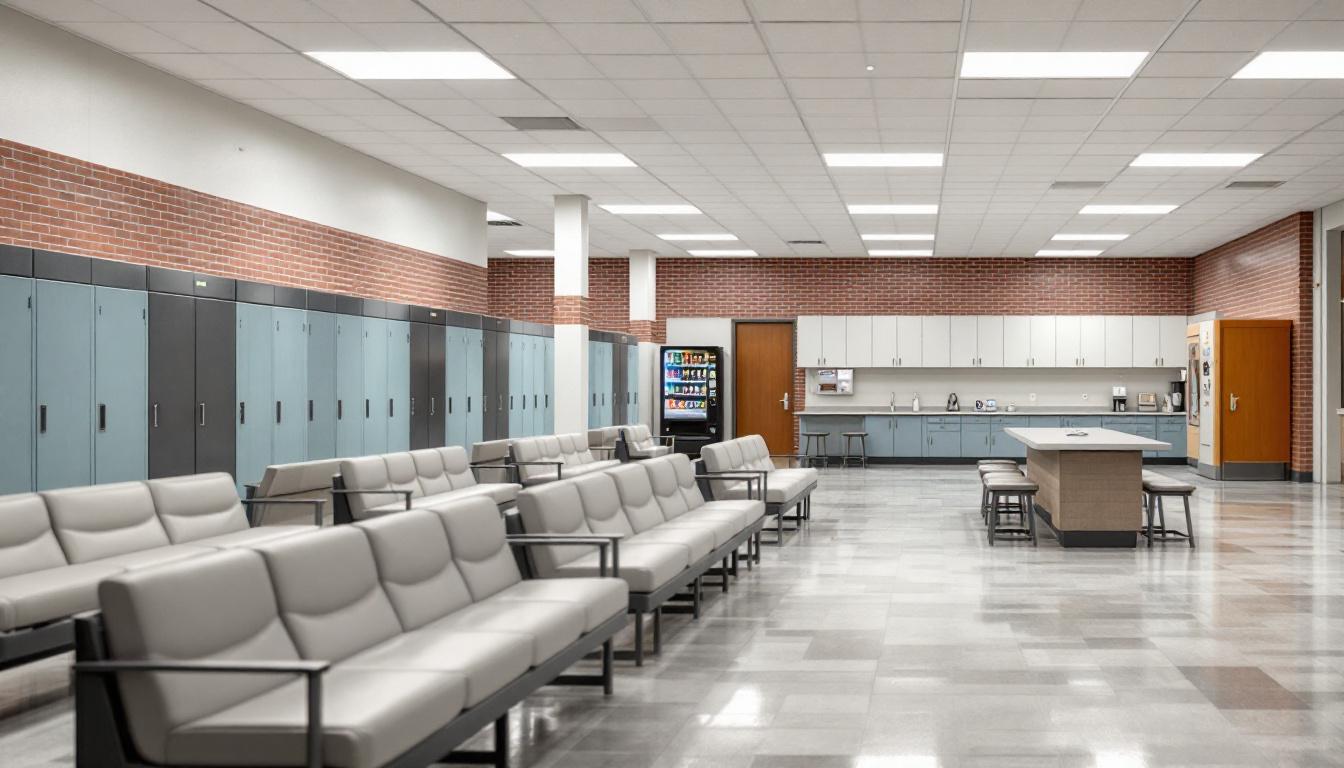
The rhythmic sound of morning announcements now marks the beginning of each structured day, as residents at Centennial Correctional Facility follow carefully organized routines that typically begin before dawn and continue through evening hours. These comprehensive schedules regularly include designated times for meals, work assignments, educational programming, and recreational activities, creating a framework that helps residents maintain stability and purpose throughout their incarceration. The predictable nature of daily operations generally provides residents with clear expectations and opportunities to engage in productive activities that may support their rehabilitation goals.
Living accommodations within the facility typically consist of shared housing units where residents are assigned based on security classification and individual needs. These units generally include basic furnishings and personal storage space, while common areas often provide spaces for interaction and leisure activities. Meals are usually served at scheduled times in designated dining areas, with menus that aim to meet nutritional requirements and accommodate various dietary restrictions. Additionally, residents may access commissary services to purchase approved personal items and supplemental food products, which can help maintain connections to personal preferences and provide small comforts during their stay.
Programming schedules typically deliver structured educational opportunities, vocational training, and therapeutic services that residents may participate in based on their individual case plans and facility capacity. Recreation time usually includes access to outdoor yards, gymnasium facilities, and organized sports activities that promote physical fitness and social interaction. While maintaining security protocols, the facility generally provides visitation opportunities and communication options such as phone calls and correspondence that help residents maintain important family connections. These various components of daily life work together to create an environment where residents can often find meaningful ways to spend their time while preparing for eventual reintegration into their communities.
Ready to Connect?
Start communicating with your loved one today
Search for an Inmate
